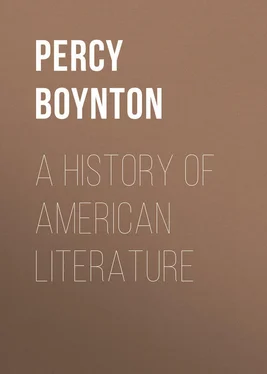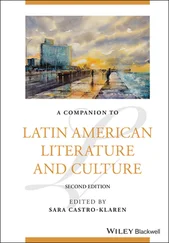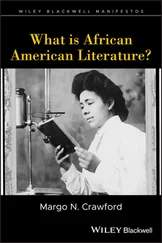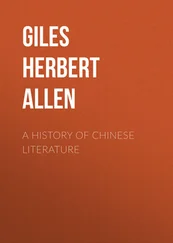Percy Boynton - A History of American Literature
Здесь есть возможность читать онлайн «Percy Boynton - A History of American Literature» — ознакомительный отрывок электронной книги совершенно бесплатно, а после прочтения отрывка купить полную версию. В некоторых случаях можно слушать аудио, скачать через торрент в формате fb2 и присутствует краткое содержание. Жанр: foreign_antique, foreign_prose, на английском языке. Описание произведения, (предисловие) а так же отзывы посетителей доступны на портале библиотеки ЛибКат.
- Название:A History of American Literature
- Автор:
- Жанр:
- Год:неизвестен
- ISBN:нет данных
- Рейтинг книги:4 / 5. Голосов: 1
-
Избранное:Добавить в избранное
- Отзывы:
-
Ваша оценка:
- 80
- 1
- 2
- 3
- 4
- 5
A History of American Literature: краткое содержание, описание и аннотация
Предлагаем к чтению аннотацию, описание, краткое содержание или предисловие (зависит от того, что написал сам автор книги «A History of American Literature»). Если вы не нашли необходимую информацию о книге — напишите в комментариях, мы постараемся отыскать её.
A History of American Literature — читать онлайн ознакомительный отрывок
Ниже представлен текст книги, разбитый по страницам. Система сохранения места последней прочитанной страницы, позволяет с удобством читать онлайн бесплатно книгу «A History of American Literature», без необходимости каждый раз заново искать на чём Вы остановились. Поставьте закладку, и сможете в любой момент перейти на страницу, на которой закончили чтение.
Интервал:
Закладка:
Franklin’s “Autobiography” is the greatest of his writings if not the greatest of all his achievements. “Poor Richard” and “The Way to Wealth” are full of good common sense, but they belong only to the “efficiency” school of ideas and morality; they are neither distinguished in form nor inspiring in content, and they are chiefly interesting because they so well mirror what was in the eighteenth-century mind. The “Autobiography” has a larger claim to attention than these, for by general consent it has come to be regarded as one of the great classics of literature. Several features have combined to make it deserve this high place. Simply stated they are all nothing more than ways of explaining that this book is the simple, definite, honest life-story of an eminent man, as he recalled it in his old age.
In the first place, it is simple and uncalculated. It was not composed, like “Poor Richard,” to sell, nor, like many of Franklin’s speeches and pamphlets, to convince by skillful argument. As a matter of fact, Franklin did not want to write it at all, and consented only when the insistence of his friends and relatives made it easier to do it than to leave it undone. Moreover, he dropped it for the thirteen years from 1771 to 1784, took it up again when wearied, old, and ill, and left it at his death hardly more than well started, with all the most celebrated part of his life still to be recounted. It is simple therefore because it was done with no desire to create an impression or to be “literary,” and is the unadorned narrative of an old man familiarly told to those who knew him best.
For the same reason it is definite and homely in what he chose to record. It is the “little, nameless, unremembered” episodes not set down in more pretentious histories for which the “Autobiography” is itself best remembered. Some of the details make real the conditions of living in those simple times – the invention of the stove named after him, the improvements in street lighting and paving, the organization of a fire company. Others are typical of human nature in any age, as his portrait of the croaker, Samuel Mickle, who sadly predicted Franklin’s failure as a printer, or as his jocular account of the entrance of luxury into his own household.
We have an English proverb that says, He that would thrive, must ask his wife . It was lucky for me that I had one as much disposed to industry and frugality as myself. She assisted me cheerfully in my business, folding and stitching pamphlets, tending shop, purchasing old linen rags for the paper-makers, etc., etc. We kept no idle servants, our table was plain and simple, our furniture of the cheapest. For instance, my breakfast was a long time bread and milk (no tea), and I ate it out of a twopenny earthen porringer, with a pewter spoon. But mark how luxury will enter families, and make a progress, in spite of principle: being called one morning to breakfast, I found it in a China bowl, with a spoon of silver! They had been bought for me without my knowledge by my wife, and had cost her the enormous sum of three and twenty shillings, for which she had no other excuse or apology to make, but that she thought her husband deserved a silver spoon and China bowl as well as any of his neighbors. This was the first appearance of plate and China in our house, which afterward in a course of years, as our wealth increased, augmented gradually to several hundred pounds in value.
Many and many of the simplest episodes reveal how shrewd, penetrating, and, above all, how clear headed he invariably was. Such, for example, was the hour when he was listening to the great evangelist, Whitefield, and while all his other auditors were being thrilled by the speaker’s eloquence, Franklin was backing away from him step by step, in order to estimate how far his voice would carry, and thus to verify the newspaper accounts of his having preached to twenty-five thousand people in the fields. Franklin went away full of admiration for the preacher’s voice, but with no word of comment on his sermon. He went often to hear Whitefield, but always as a very human public speaker and never as a “divine.” A biographer, even one of his associates, could not have known many of the intimate facts that Franklin included, and he would almost surely have left out other details as irrelevant or impertinent. Franklin himself, in contrast, wrote the things which still clung in his old man’s memory and which must have been important in his development, or he would have forgotten them.
Another striking feature of the “Autobiography” is its honesty, for he did not hesitate to record happenings which revealed defects in his character – defects which nine out of ten admiring biographers would have been inclined to omit or even actually to cover up. Franklin knew that his life had not been all admirable, that many times it had not been above reproach; but, all things considered, he was willing to let it stand for what it was. In consequence, if one reads his story as honestly as Franklin wrote it, – and few people do, – it will appear that not only was he disorderly and unmethodical but that he was not always truthful, that he was sometimes unscrupulous in business, and that he was at times self-indulgent and immoral. In fact too often the editing of Franklin’s life-story seems to have been done on the principle laid down by Dr. Samuel Johnson about Chesterfield’s “Letters to his Son” – that they should be put into the hands of every young man after the immorality had been taken out of them. This is not honest teaching and does not lead to honest habits of study.
The truth is that Franklin was like other people in being a combination of virtues and defects. He was unlike other people in having extraordinary talents and virtues and in owning up to his defects. For the two great “errata” of his life – the use of money intrusted to him for Mr. Vernon and his unfaithfulness while in London to Miss Read, his betrothed – he afterward made the fullest possible atonement. In his glorification of usefulness at every turn he was at once the greatest expounder and the greatest example of his century. He made a religion of usefulness, putting it into a simple creed which gives less heed to the spirit of worship than many of us need, but far more to the spirit of service than most of us follow:
It is expressed in these words, viz.:
That there is one God, who made all things.
That he governs the world by his providence.
That he ought to be worshipped by adoration, prayer and thanksgiving.
But that the most acceptable service of God is doing good to man.
That the soul is immortal.
And that God will certainly reward virtue and punish vice, either here or hereafter.
In the third of these articles Franklin recommended a worship which he did not practice, but in the fourth he presented a doctrine of service of which his life was a remarkable fulfillment. In his theory of life Franklin seemed to make no claims for the finer emotions, but in his actual citizenship in all its public aspects he was so far above the average man as to serve as a pretty safe “working model” for this and coming generations.
If he had not written this uncompleted life-story we should not know the man as intimately as we do, for to read the “Autobiography” is to read Franklin himself.
Since the “Autobiography” brings the story of Franklin only up to 1757, it gives no hint of the Revolutionary struggle in which as negotiator and diplomat he was hardly less important than was Washington as military leader. The America presented in these pages is loyal and contented. The rising voices of discomfort from 1765 to 1775, of doubt during the next year, and of decision for revolt in 1776 were all echoed and often led by Franklin in his political writings. Moreover, it is of especial significance in these days to recall another fact unrecorded in his own story – that he was the first American to represent his nation among other nations, and that in his feeling for America as a member of the great world-family he was a hundred years and more ahead of his countrymen. The new marshaling of forces in 1917 which brought about the celebration of the Fourth of July in London and the arrival of allied American troops in Paris recalled from hour to hour the name of Franklin as our first great international figure.
Читать дальшеИнтервал:
Закладка:
Похожие книги на «A History of American Literature»
Представляем Вашему вниманию похожие книги на «A History of American Literature» списком для выбора. Мы отобрали схожую по названию и смыслу литературу в надежде предоставить читателям больше вариантов отыскать новые, интересные, ещё непрочитанные произведения.
Обсуждение, отзывы о книге «A History of American Literature» и просто собственные мнения читателей. Оставьте ваши комментарии, напишите, что Вы думаете о произведении, его смысле или главных героях. Укажите что конкретно понравилось, а что нет, и почему Вы так считаете.











